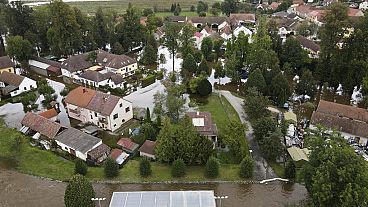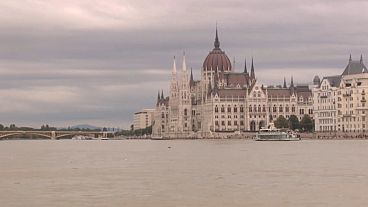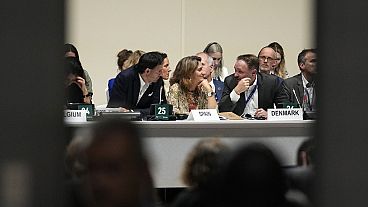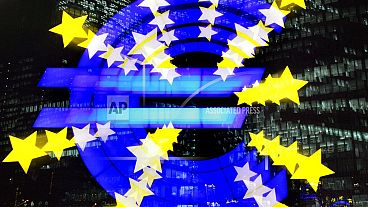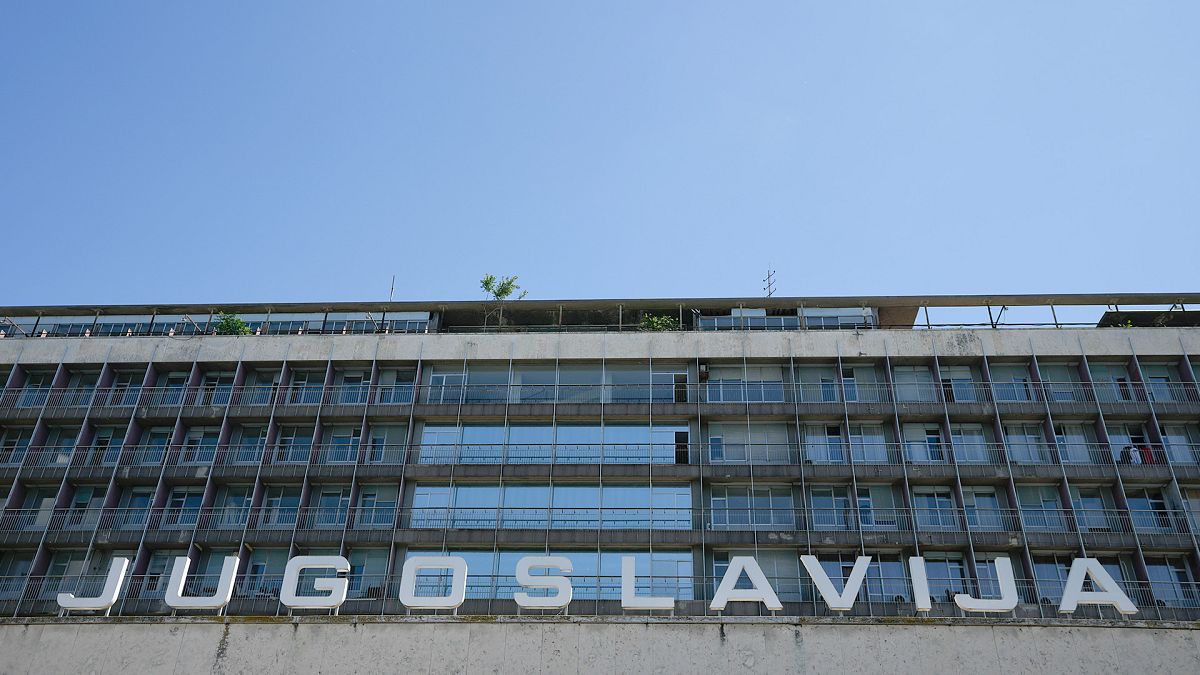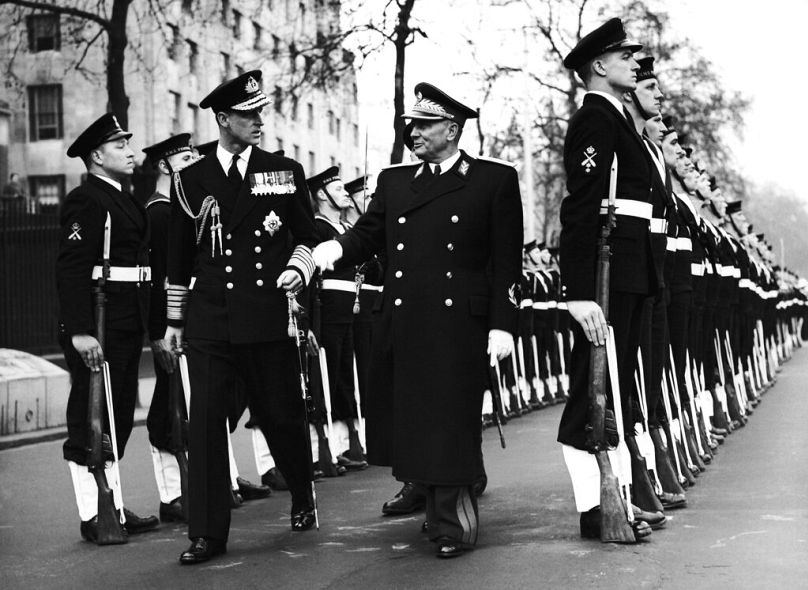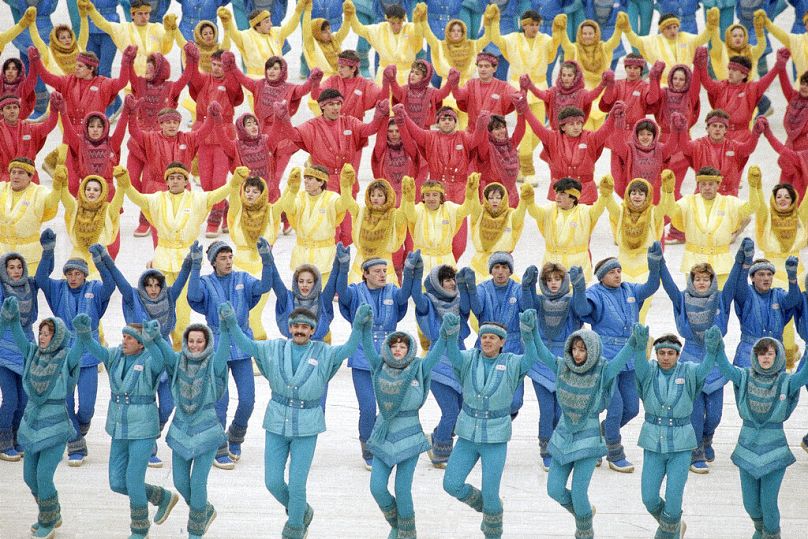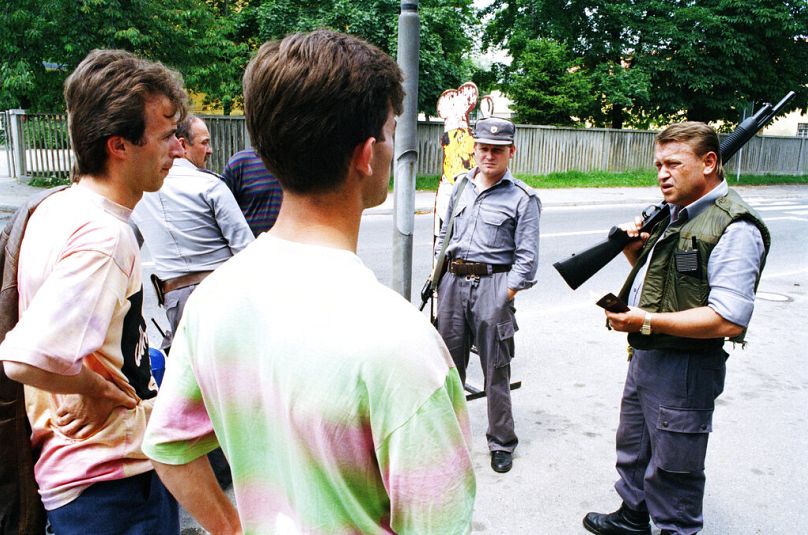What would Marta Kos' Yugoslav secret service past imply, and what kind of a role did the socialist republic's spy agency play in Europe's past?
As European Commission President Ursula von der Leyen prepared to dole out portfolios to her new College, no one expected Slovenia to drag her into a domestic dispute involving allegations of communist-era espionage.
The small Alpine country of about 2.1 million crashed von der Leyen's party planned for this week after a last-minute change in Commissioner nominee saw Marta Kos receive the nod from the government in Ljubljana.
The liberal coalition led by Prime Minister Robert Golob immediately came under fire over the move, with right-wing populist SDS criticising Kos over her lack of experience and alleged involvement with the former Yugoslav secret service, UDBA.
“Can you imagine that somebody, for example, in Germany would nominate a candidate with the burden of being a Stasi associate in the past?” SDS MEP Romana Tomc told Euronews, referring to the notorious former East German secret service.
“This is a no-go for us,” she added.
While Kos refuted the charges in a statement to Euronews, the allegations raised many eyebrows in Brussels over whether Slovenia inadvertently or otherwise assigned a former spy to a top EU job.
But what would Kos' Yugoslav secret service past imply, and what kind of a role did the socialist republic's spy agency play in Europe's past?
What's the story with UDBA?
Critics of Yugoslav policies in post-war Western Balkan societies often point out the extreme examples of UDBA's workings, including extrajudicial murders, as a sign of the former regime's oppressive and bloodthirsty nature.
However, according to Croatian historian Hrvoje Klasić, UDBA and its successor post-1960s reforms, SDB/SDS/SDV, are rarely out of the ordinary compared to other security agencies around the world at the time.
"In countries that came out of the breakup of Yugoslavia, everything related to Yugoslavia among those on the political right is deemed a priori negative," Klasić told Euronews.
Reaching out for comparisons to other, more malign secret services doesn't paint the full picture, he added.
"You can’t compare UDBA to the Romanian Securitate, the Czechoslovak secret service (StB/ŠtB) or Stasi."
“Comparing Stasi to it is like comparing East Germany to Yugoslavia. Although communist and ruled by one party, Yugoslavia was a considerably more free of a society compared to East Germany," Klasić said.
The two countries had completely different trajectories. Unlike East Germany, which grew out of the Soviet occupation of eastern German territories post-World War II, the Socialist Federal Republic of Yugoslavia was governed independently.
This came with a wildly different set of problems: as Cold War tensions heightened, Belgrade’s ever-narrowing space between two increasingly pressure-heavy and sometimes hostile blocs fuelled the fears of nationalist diaspora-instigated violence, attempts at hostile takeover or full-blown invasion.
While East Germany, well within the USSR's bloc, used all available means to keep those living there obedient and toeing the line, Yugoslavia set its sights on those who might try to disrupt its system from abroad.
In turn, the state security agency’s chief, Aleksandar Ranković, tightened the screws on the country’s security apparatus.
UDBA's covert actions against those most hardline — such as Nazi collaborator and Ustasha commander Božidar Kavran, who was caught while plotting an uprising and subsequently hanged — were used as a very public deterrent and a reminder of who was in charge.
'Coca Cola communism' and Carlos the Jackal
However, witch hunts fuelled by Ranković's personal peeves prompted the need to axe him and ensure no single individual from one of Yugoslavia's plethora of ethnic groups held the reins of power again.
“There were many irregularities in UDBA's work, but it has to be said that in 1966, precisely because of those issues and numerous cases of abuse especially in Kosovo, its top chief, or ‘Yugoslavia’s first policeman’ as he was called then, Ranković was dismissed," Klasić explained.
UDBA 2.0 — now known as State Security Service, or SDB in Serbian, SDS in Croatian and SDV in Slovenian — became decentralised, with each of the six Yugoslav republics in control over its own branch.
The 1960s shift came at a time when the country, wary of being too friendly with either side along the Cold War divide, slowly espoused what has been pegged as “Coca-Cola communism” — its own brand of Marxist socialism peppered with an openness to the West.
As its citizens embraced weekend trips to Italy, blue jeans and Adidas sneakers, in the global security realm, Yugoslavs decided not to be just two-bit players.
The security apparatus collaborated with everyone from Israel’s intelligence agency, Mossad, to major terrorists like Ilich Ramírez Sánchez aka Carlos the Jackal, who Mossad had on its most wanted list because of his active role in the Popular Front for the Liberation of Palestine, a hardline group both the EU and the US designated as terrorists.
In his own words, The Jackal was hired as a security advisor for the 1984 Winter Olympics held in Sarajevo.
According to some historians, UDBA might have even played a role in neighbouring Italy's "Years of Lead," a period of political violence and social upheaval from the late 1960s until the late 1980s, by engaging with the leftist Red Brigades.
Meanwhile, a series of bloody extraterritorial executions of nationalist diaspora and high-level Nazi collaborationists in exile — such as the bludgeoning to death of the Nazi German satellite NDH's top figure in charge of its WWII concentration camps, Max Luburić, in Spain — had UDBA's fingerprints all over them.
“Every country during the Cold War had secret services which were tasked with protecting it in any way they saw fit. The CIA, the MI5 and others also used many unnacceptable means to protect their countries' constitutional order.”
“However, the higher the level of freedom and democracy in a society, the less significant the roles of those agencies are,” Klasić explained.
How can you tell who worked for UDBA anyway?
What could have been Kos' role in all of this? The way UDBA worked makes it very hard to determine who was an actual agent and who was a common citizen who might have been interviewed over a benign matter, Klasić explained.
Furthermore, UDBA classified as "informants" all people of interest it invited for a conversation, including scientists, journalists or diplomats.
“It worked like this: if you were a physics professor and you went to the US or France to an international symposium of nuclear physicists, they’d have a conversation with you upon your return, asking whether there were any mentions of nuclear weapons or some such thing."
"Then you'd retell what took place because it is of interest to the state and what you saw there as a scientist, and someone would note that down as information from professor such-and-such."
In 2024, this can easily get manipulated into painting that person as a former secret service associate, Klasić said. And in Kos' case, it has very little to do with any concern over Europe or its security, especially when it is about someone who was in their mid-20s by the time Yugoslavia and its secret service were no more.
"This is very commonly done in domestic squabbles and for the sake of domestic political battles. Labelling someone like that does not necessarily mean warning Europe that someone dangerous will be holding one of its offices. It's rather used to discredit a person or their party so that they would get less votes in the next election," he explained.
But this type of lustration — the questioning and removal of public officials associated with a past, possibly tainted political regime — proved impossible in the case of the former Yugoslavia.
"In Croatia, there were many people who worked for the service or as part of the security apparatus as police officers and then actively participated in the defence of the country" during the 1991-1995 war of independence, he explained.
"So who do you lustrate? A person who tapped the phones of the Croatian far-right immigration in 1985, but then got wounded on the frontline in 1991?"

